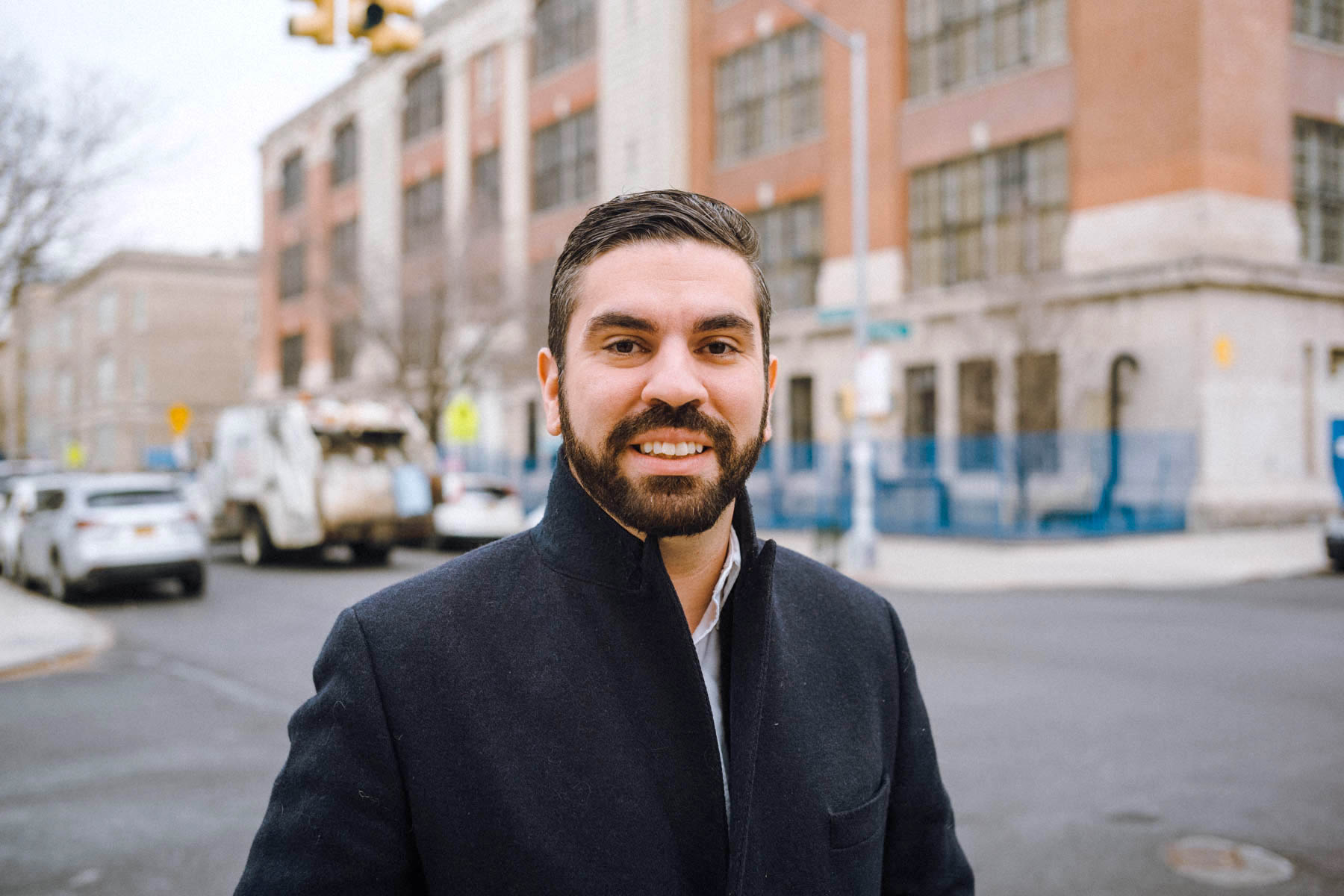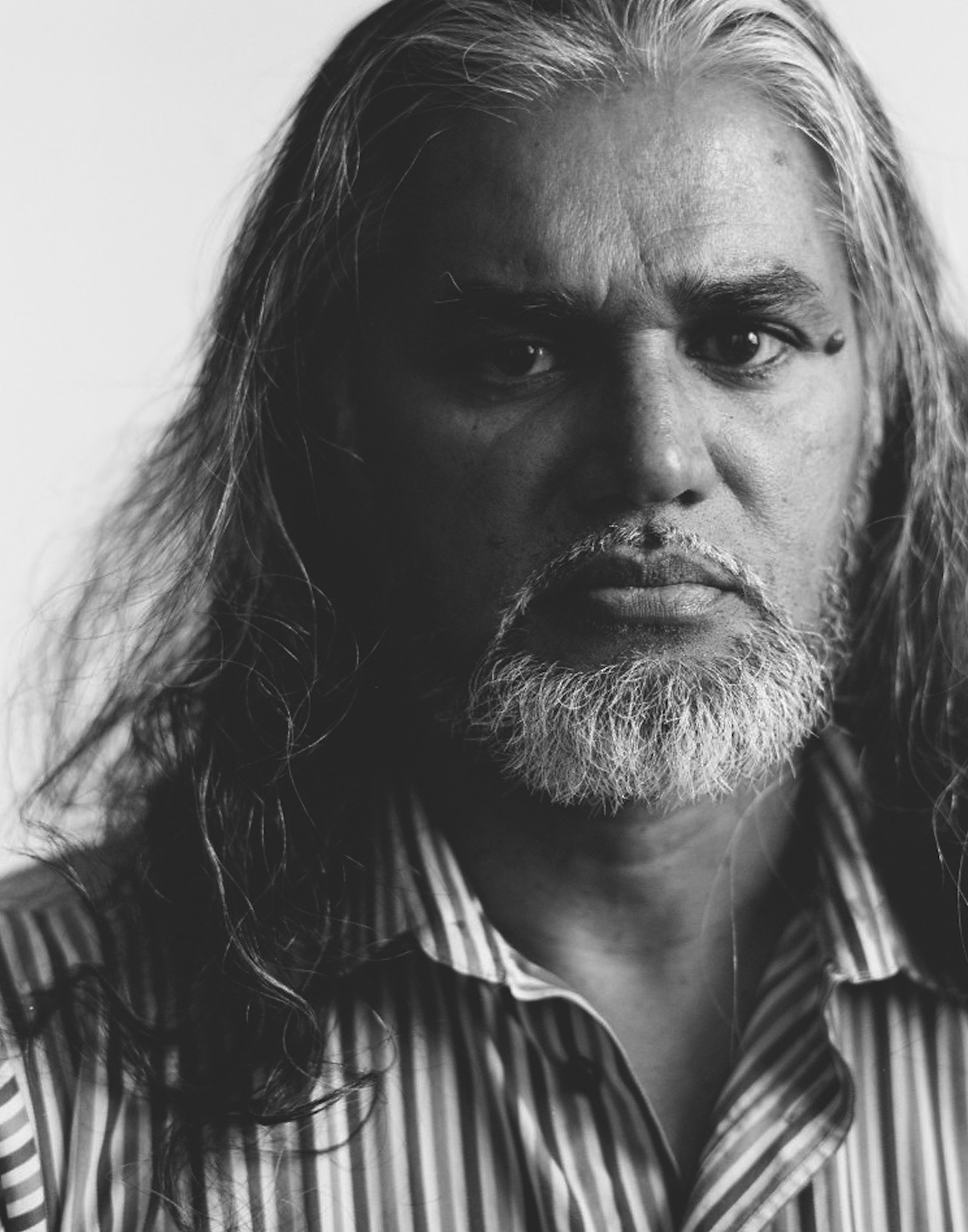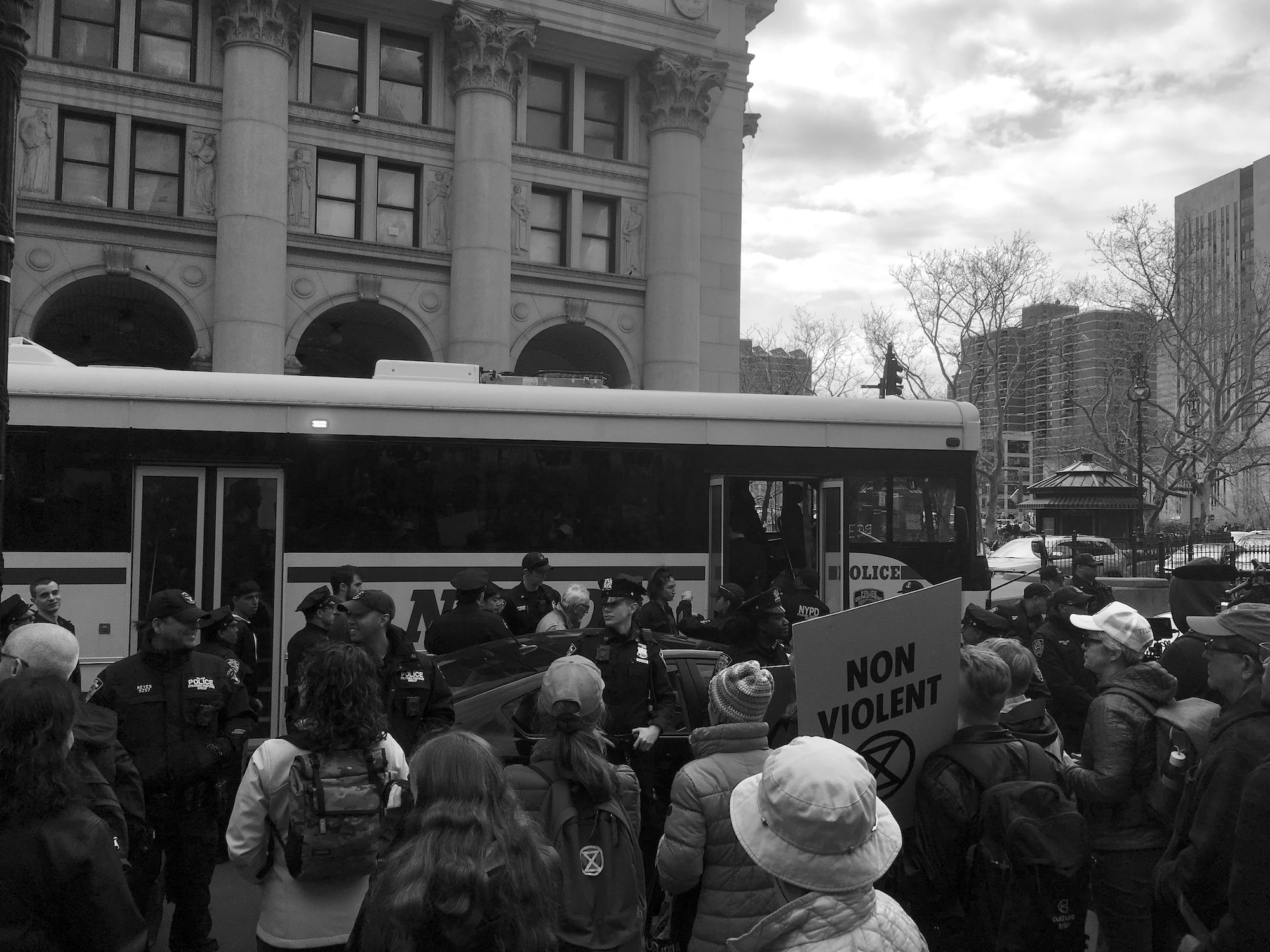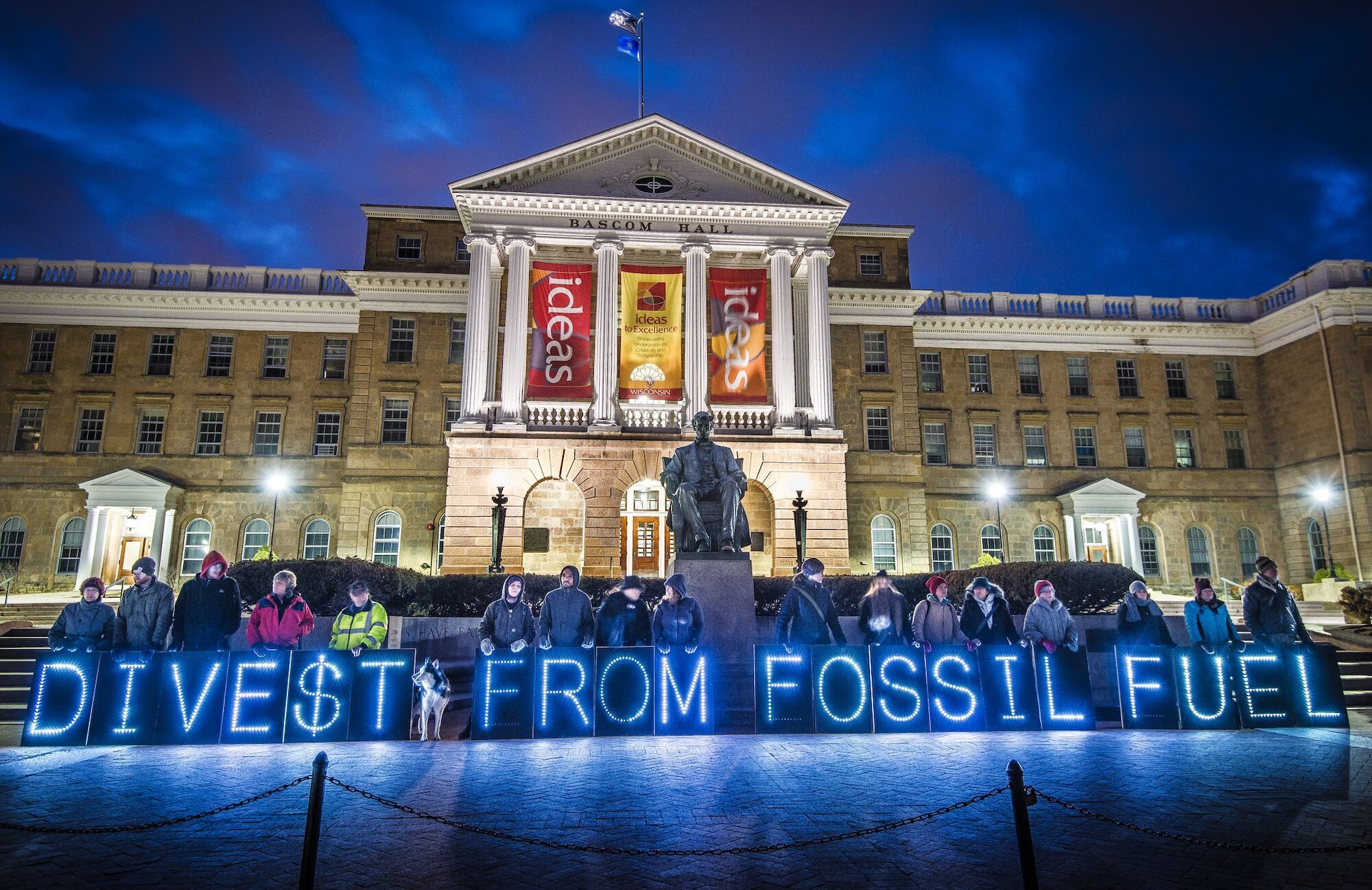NY State of Mind: Rafael Espinal

New York City councilman Rafael Espinal had a busy 2017. Along with local groups, he led the charge in overturning the city's notoriously racist Cabaret Law. Now, he's focusing on the environment.
In his quiet office high up in the Council building in TriBeCa, Rafael Espinal – Council Member for the 37 District, representing Bed-Stuy, Brownsville, Bushwick, Crown Heights, Cypress Hills and East New York – settles down to speak, flipping through a copy of Good Trouble we've brought with us. One wall is given to clippings from magazines and newspapers, including when he made Time Out's 'New Yorkers of the Year 2017' for his work overturning the Cabaret Law and creating the city's first Night Mayor (who will be announced in a few weeks). Now, he is focusing on environmental and sustainable initiatives, and 2018 is already off to a cracking start in that regard, with New York City recently announcing a huge $5bn divestment from fossil fuel funds, along with a commitment to sueing the five leading oil companies for damage to the environment. It's "a big step in the right direction," Espinal says. "New York City has one of the largest pension funds… It’s time we put our money where our mouths are."
All portraits for Good Trouble by Ben Rayner
An electric guitar is propped up in the corner, a visible link to the time he spent in Williamsburg going to watch bands in his 20s, which he explains convinced him of the importance of nightlife to the city's community. "I’m a big fan of The Strokes," he says. "I was motivated by their music to teach myself how to play. I was always intrigued by the fact bands like the Yeah Yeah Yeahs and TV on the Radio played some of their first shows out of those spaces."
You had a very productive 2017. What’s going to be your next area of focus?
I think the big conversation now is around climate change. And I think now more than ever, it's important for local government to be aggressive as it can be to help implement policies that's going to fight back against what's happening in Washington. I think it's unfortunate that we had to wait this long to make that realization – because in reality, it does start in local law, it starts with the everyday person living in New York City. But I think the silver lining is that what's happening in Washington is allowing people to really see they can have an impact on local government.
I'm looking to introduce a few Bills over the next few months, and it's going to be focused, one, on cooling down our city, two, reducing the amount of waste that New Yorkers are producing, and three, around food and how we can localize farming on a city level, instead of depending on large-scale farms outside of the city.
Going back to the Cabaret Law, did you expect that to take off the way it did?
When I first got elected, in the back of my mind I kept telling myself, ‘What can I do to help with the nightlife community? How can I help the neighborhood bar? How can I help the DIY music spaces that create a sense of community, and help people recognize and express themselves?’ In my second year in office, I learned the negative impact the Cabaret Law was having on a lot of venues, but I also learned the racial and homophobic history it had, and how it was used to shut down a lot of venues from the 30s all the way up to the 70s, 80s and 90s.
“Their reasoning was: ‘We already have a president and government who suppresses us and oppresses us – why does the city of New York still have this law on its books?’”
It wasn't until 2016, early 2017, right after Trump became president, there was a Town Hall put together by artists and local business owners and local community folks to call on the city to repeal the Cabaret Law. Their reasoning was: 'We already have a president and government who suppresses us and oppresses us – why does the city of New York still have this law on its books?' I gave a speech on why nightlife was important to me and how ridiculous it is we still have this law on its books, and I really saw everyone feel that there's hope in actually making this happen, and we joined forces.
With Mayor de Blasio signing the repeal of the Cabaret Law, via Brooklyn Daily Eagle
We used the press and we used grassroots outreach through Twitter and social media. That helped the perception there was a huge movement behind repealing this law, and that motivated the mayor's office to actually put this as part of the agenda, which also gave me the energy I needed and the force I needed to help push that bill to the city council. It all worked.
Sounds like a lot of things have to come together at the same time to make something happen. Is that what you learned from that?
All of those pieces. Yeah, now I know that any time I need to get something done, all this needs to be replicated!
You make it sound so easy. You grew up in Brooklyn, was it the same neighborhoods you’re representing now?
I grew up in East New York, and Cypress Hills. I was born and raised there. Cypress Hills is north of that area, East New York is technically south. At the time I was growing up, it was one of the – and probably still is – one of the most disinvested communities in the city. Very high crime, lack of resources for students, crumbling infrastructure. It's funny because you walk five blocks into Queens and the streets are tree-lined, roads repaved… and you walk five blocks into my neighbourhood and there's graffiti everywhere and crime. I was like, ‘How is this possible?’
When I graduated out of college, I got a degree in English, I thought, ‘Well, maybe I can do some good by teaching in my local high school.’ And having that connection with the students, and show them that there's more to life than East New York has to offer. Because a lot of the people I grew up with are still in the neighborhood, hang out at the same street corners, still living the same life. Even though I had my own aspirations of being in film and media or being a writer… In the back of my mind, I always knew that more needs to be done so I can inspire the people I grew up with, where I lived.
What made you decide to become a Council Member?
I was unemployed, looking for a job, worked for the city Councilman, who was looking for a writer. I saw through him the impact he had on all the infrastructure in my neighborhood, andI said, 'Well, there's some real power here. There's real opportunity to shape the neighborhood the way I've always wanted to see.' I worked hard in his office. He felt like I was someone that could be capable of running for office one day.
In that time, which was in my 20s, Williamsburg was budding as the place where artists were. I would spend a lot of my time hanging out in the nightlife. I was in bars, checking out the music scene, and that exposed me to all the passions I had that my neighbourhood never offered me. And being able to see how important that is to the development of a person, because it was important to me.
Why do you think nightlife is so important to a community?
Nightlife helped me evolve as a human being, and got my mindset out of poverty. And it continued to perpetuate this idea that I had growing up of – why is it that other communities have these great things? Why can't East New York and Cypress Hills have these things? The other thing that's interesting about nightlife is it's a great playing field leveler, where people of different communities can come together and interact and be with each other and enjoy themselves or express themselves.
The 'L-Train shutdown' is coming and affecting the communities you represent. One of the things I was unaware of is how Bushwick has some of the worst air quality in the city. You're now pushing the MTA to make the extra buses all electric. Do I have that right?
Via Freewilliamsburg.com
Bushwick, Williamsburg and East New York, that whole North Brooklyn belt has some of the poorest air quality in the city – and that has had an impact on children being born there.
We have the L-train shutting down because of the damage sustained from Superstorm Sandy, which everyone in government in the city will tell you was a result of climate change. So, now we have a deteriorating subway line because of the saltwater the storm brought into the tunnel, and the MTA's response is to introduce 200 diesel-powered buses onto those streets, which we know will contribute to climate change and global warming! To put it into context, each bus produces the equivalence of 22 cars when it comes to carbon. Now, we have 200 buses, which I did the math, it's over 4000 cars on the streets being added extra in those two years those trains will be shut down. And these buses have a life expectancy of about 12 years.
“Bushwick, Williamsburg and East New York, that whole North Brooklyn belt has some of the poorest air quality in the city”
The Sierra Club started organizing businesses and local residents around the idea that the MTA should go all electric. And film maker Darren Aronofsky, who's a big environmental activist, born and raised in Brooklyn. They all reached out and plugged me into what they were working on, and we formed this coalition to push the MTA to instead introduce 200 electric buses, and put MTA into the next generation of green transportation. Why put buses that have a 12-year life cycle onto our streets that are burning diesel, when we're at a time to start with electric?
What is the best way for groups and individuals to support this, on a practical level?
Again it comes down to, and I hate using this – because the word ‘perception’ usually means that it's not real – but, it's creating a perception that there are thousands of people who want their local government to move in this direction. There are elections coming up, the state-wide elections: people who are responsible for the MTA. I think this is the perfect opportunity to start making this a big issue, because this can be a sticking point for candidates that are running.
In a huge metropolis like New York, what is the best way for people who want to create change be effective?
Number one, register to vote. That's the biggest thing. If you don't vote, you don't really have a voice. But if you're someone at home right now and say, ‘I wanna get involved,’ I think the most effective way to do that is reach out to your Council Member. Your city council member speaks for the neighborhood you live in. He or she has the power to introduce legislation, and deal with the issues in your immediate neighbourhood you might have issues with. So, look them up, see who they are, follow them on social media, keep in contact with them. They do write back and they do listen, and go to the Town Hall. Stay plugged in.
It applies to all big cities. People should know that you have direct power to decide who your local elected official is going to be. It's not like voting for president, where there's an electoral body college. Every vote counts in local election. I have colleagues who have won by two votes.
Another thing that is a popular conversation at the moment, is encouraging people to run for office for the first time. In Virginia last year, there were some examples of how successful that can be. What do you think about that?
I didn't think I was gonna run for office. The thought of me running for office, that didn't come to me 'til I was like 24 years old, and I ran when I was 26. So, it wasn't something I wanted to do with my life but it was something I was passionate enough to do because I knew of the impact on my neighbourhood. So, I encourage anyone and everyone who wants to run for office to not be afraid to do it. The path is there for anyone who has the determination.
“I encourage anyone and everyone who wants to run for office to not be afraid to do it. The path is there for anyone who has the determination.”
The best way I think to start is: get to know your local elected officials who are there now. Build that relationship, learn how it works, learn how campaigns work, volunteer, get yourself known, go to the community board meetings, become a figure in the neighborhood. And from there, you're able to go through the process and put your name on the ballot.
There's a lot of bad news around at the moment. How do you personally remain motivated and optimistic?
I'm very optimistic. I'm an idealist at heart. But I know government has a lot of bureaucracy. I stay away from reading negative tweets or news. I know it exists, I know what the issues are, but I don't need to hear 20 people complain about the same thing. That drags you down.
Let's focus on those issues that we actually have control over, instead of everything else that's going on – because we can't, at the current moment, just walk into the White House and tell Trump what to do. So, let's complain less, and let's find ways to move forward.
ACTIONS
Register to vote! In most places, it's pretty easy and it doesn't take long. If you're in the US, start here. The UK, here.
Hell, why not run for office yourself? Run for Something
Read: 'No More Small Pilots: It’s Time to Rapidly Increase Electric Transit Buses'
Writer, editor and consultant based in London /New York










